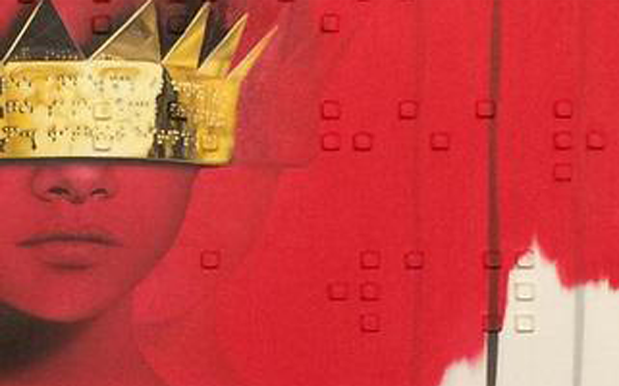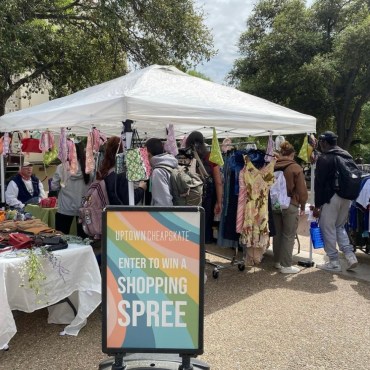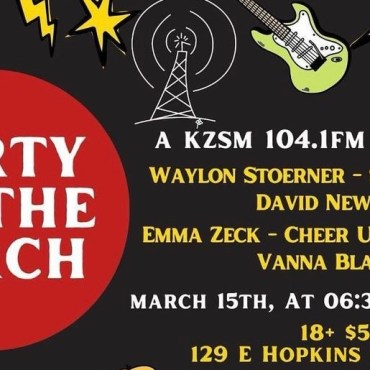Listeners:
Top listeners:
-
play_arrow
KTSW 89.9

By Joshua Morrison
Blog Content Contributor
We’ve been waiting for a new Rihanna album for three years and during that time there was a lot of speculation about what on earth the album, if it ever came out, could sound like. This curiosity was partially fueled by the stray, sonically-divergent songs she released during the between-albums drought. These songs saw her going acoustic, going hard, and waxing political. The relationship between these songs and the now-released Anti is an interesting one. Sonically, it’s likely for the best that they didn’t make the cut because they don’t really fit with the album’s tone. Spiritually, however, there is a tangible congruence to all of the material she’s released since 2012’s Unapologetic.
The songs leading up to and included on Anti all feel like the work of an artist self-consciously shedding her skin and resolving to only make the music that she really wants to make. Rihanna has been planting seeds for this all along, and Anti could fairly be called a descendant of both Rated R and Unapologetic. The key difference is that both of those albums still contained many songs that sounded like they could easily become the next Rihanna super-smash. Anti, by contrast, might have two. In short, the departure is unmissable and Rihanna has released an album that falls into a category of female pop-star albums that has, at this point, become almost a popular culture trope. This is her Artist Album.
The Artist Album is the album in a pop-star’s career that finds them making a bid for artistic credibility that often, though not always, and certainly not in this case, is paired with a given pop-star’s transition into adulthood. These albums often contain music that the performer was more involved in writing (think Stripped by Christina Aguilera or M!ssundaztood by P!nk), experimentation with or full-on immersion into new generic territory (think Mariah Carey finally getting to go full hip-hop on Butterfly), or both. The performer’s relationship to her sexuality often changes dramatically during the Artist Album eras of her career. In the cases of the examples listed thus far, both Mariah and Christina emerged as more sexual beings than they had previously revealed, while P!nk notably, if not completely, de-emphasized her sexuality.
Not all pop-stars have Artist Albums. Some, like Jennifer Lopez, appear disinterested. Others, like Madonna and Beyoncé, don’t need them because they’ve had little cause to prove their artistry. Some artists, like Janet Jackson, even have multiple albums that fit this bill. Enough pop-stars, however, do release these albums to make the practice worth exploring. What is it about being a female pop-star that drives so many of them to feel compelled to depart from what has made them famous and foster self-consciously artistic personae? I don’t know, but I have a few thoughts.
We, as a culture, make a habit out of not taking female pop-stars that seriously. Artistic credibility tends to be measured, preposterously, by three practices: authoring songs, the ability to play instruments or the ability to sing with virtuosity. Often, female pop-stars don’t do these things and perhaps equally often they still aren’t taken quite seriously even when they do. These figures often come with a different skill set that isn’t valued in the same way the above listed practices are. A non-exhaustive list of these talents includes the arts of interpreting songs, striking poses, working the media and curating the work and ideas of other people into something striking and cohesive.
I try to imagine the experience of being a world-famous artist who isn’t taken seriously as an artist. What it must be like to be told by many corners of culture that what you do is not artistic enough to be valued. It must, at times, make your endeavors feel hollow and create a yearning to be taken seriously. The Artist Album can be read as a shot back at the nay-sayers. They represent moments when artists take a figurative look at the critics and retort. “Fine,” they seem to say, “you think what I do isn’t art, and you think I can’t do what you call art? Well. Get ready.”
One thing that unites almost all of the pop-star Artist Albums, however, is that they usually bring about a temporary or permanent downturn in the commercial success of their creator (M!ssundaztood stands as a glaring exception to this rule). The move can be such a risk, in fact, that some of these albums never even get released due to record-label reluctance. Britney Spears recorded an Artist Album, or at least bits and pieces of one, only to have it face this fate. The album, Original Doll, has now become lore. There’s a lot of theorizing that could be done about why this is the case, most of which is likely damning of a sexist culture. Those are conversations we should have, and that I plan to continue fostering. The note I’ll end on today, however, takes us back to where we started: Anti.
The roll-out of Rihanna’s new album has been unwieldy and eccentric enough to make it clear that Rihanna isn’t following any template. Nonetheless, this album cannot be mistaken for anything but an Artist Album and that might mean something really important for contemporary popular culture. Rihanna is the signature artist of the digital era and has the third highest number of Billboard Hot 100 #1 hits in history. In short, she’s one of the absolute biggest, most important pop-stars we have. Anti suggests that we may be witnessing one of our major pop-player’s exit from the pop game, or at least relinquishing her leadership position. This is far from a given. If we were betting on someone to be able to buck the trend, Rihanna would be a strong candidate. The possibility, however, is inarguably real and it may be exactly what she intended.
Share this:
- Click to share on Twitter (Opens in new window)
- Click to share on Facebook (Opens in new window)
- Click to share on Tumblr (Opens in new window)
- Click to share on Pinterest (Opens in new window)
- Click to share on Reddit (Opens in new window)
- Click to email a link to a friend (Opens in new window)
- Click to print (Opens in new window)
Similar posts
This Blog is Propery of KTSW




Post comments (0)